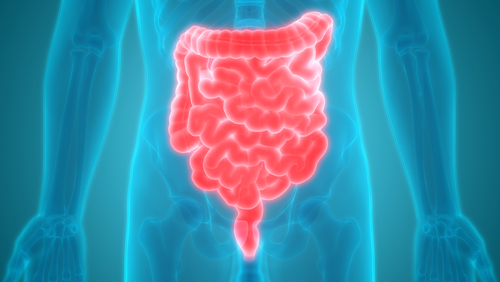Gut microbes found in feces avoid triggering immune reactions that could lead to conditions like inflammatory bowel disease (IBD) by creating a mucus barrier that separates them from immune cells, a study shows.
The discovery helps explain why antibiotics can create digestive problems. It also provides a path toward potential new IBD therapeutic strategies, researchers said.
The study, “Proximal colon–derived O-glycosylated mucus encapsulates and modulates the microbiota,” was published in the journal Science.
The colon houses a rich microbial ecosystem known as the gut microbiome, whose composition and status is directly related to human health.
“The colon is not just a digestive organ, but an immune organ,” Lijun Xia, MD, PhD, the study’s principal investigator, said in a press release.
“Our microbiome begins to develop at the moment of birth and evolves throughout our lives. It’s essential for the growth and maturation of the acquired immune system in our body,” Xia said. “When it’s not well developed or cared for, it doesn’t operate as it should, which can lead to diseases.”
As waste materials — feces — pass through the colon, they becomes encapsulated in two layers of sticky mucus, known as b1 and b2. Specialized cells lining the intestines, called goblet cells, produce this mucus as a defense mechanism to keep potentially harmful gut microbes separated from the rest of the colon — including immune cells present in the colon.
Scientists at the Oklahoma Medical Research Foundation were surprised to find evidence that the gut microbes themselves trigger the production of this mucus.
“Colon mucus segregates the intestinal microbiota from host tissues, but how it organizes to function throughout the colon is unclear,” they wrote.
To address this question, the team engineered several types of mice, each deficient in producing O-glycans in different parts of the colon. Of note, O-glycans are sugars present in abundance in mucus.
The scientists identified a region called the proximal colon as being key to the production of the b1 layer that is needed to separate microbes from the surrounding host tissue in fecal pellets.
“Loss of the b1 layer … significantly reduced the overall distance of the microbes to the mucosal tissue. These results indicate that proximal colon–derived O-glycans form the b1 layer critical for segregating the microbiota from the host tissue,” the researchers wrote.
The team also observed that a bacteria called Bacteroides thetaiotaomicron, normally found only inside mucus-coated fecal pellets, was no longer encapsulated in these pellets.
Fecal transplants from mice with healthy microbiomes rescued the ability of the mutant mice to produce mucus, further indicating that the bacteria present in the gut microbiome were responsible for directing mucus production in the colon and its own encapsulation in it.
Mice unable to produce mucus on their own were susceptible to spontaneous colitis — an inflammation of the colon — and acute intestinal injuries.
Similar to the engineered mice, those treated with broad-spectrum antibiotics grew poorly formed mucus layers.
To the investigators, this indicated that microbes normally inhabiting the proximal colon in some way direct the production of mucus, of which O-glycans are a critical component. These gut microbes are therefore essential in limiting their own ability to cause disease as they travel through the small intestine with fecal matter.
These findings may have important implications in the treatment of patients whose microbiome is out of balance, the team believes.
“Whether because of antibiotics interrupting mucus production or a total colon removal due to ulcerative colitis, painful inflammation can result,” Xia said. “Now that we better understand the role and origin of this mucus, we will study how we can supplement it or restore its production.”
Stephen Prescott, MD, president of the Oklahoma Medical Research Foundation, noted that scientists are only now recognizing the role the gut’s microorganisms play in human health.
“Researchers have found these tiny organisms living in our digestive tracts may be key players in obesity, diabetes and a variety of autoimmune and digestive diseases,” Prescott said. “Dr. Xia’s work proves a strong connection between the protective coating driven by the microbiome and the development of a disease like colitis.”
The discovery represents a major revision of the current mucus system model, according to Xia, and also raises the possibility of exchanging invasive procedures like colonoscopies for more passive strategies to monitor conditions like IBD.
“Rather than repeated invasive procedures to track the progression of IBD, we may be able to measure the presence of the mucus in a fecal sample and assess a patient’s gut health,” Xia said.

